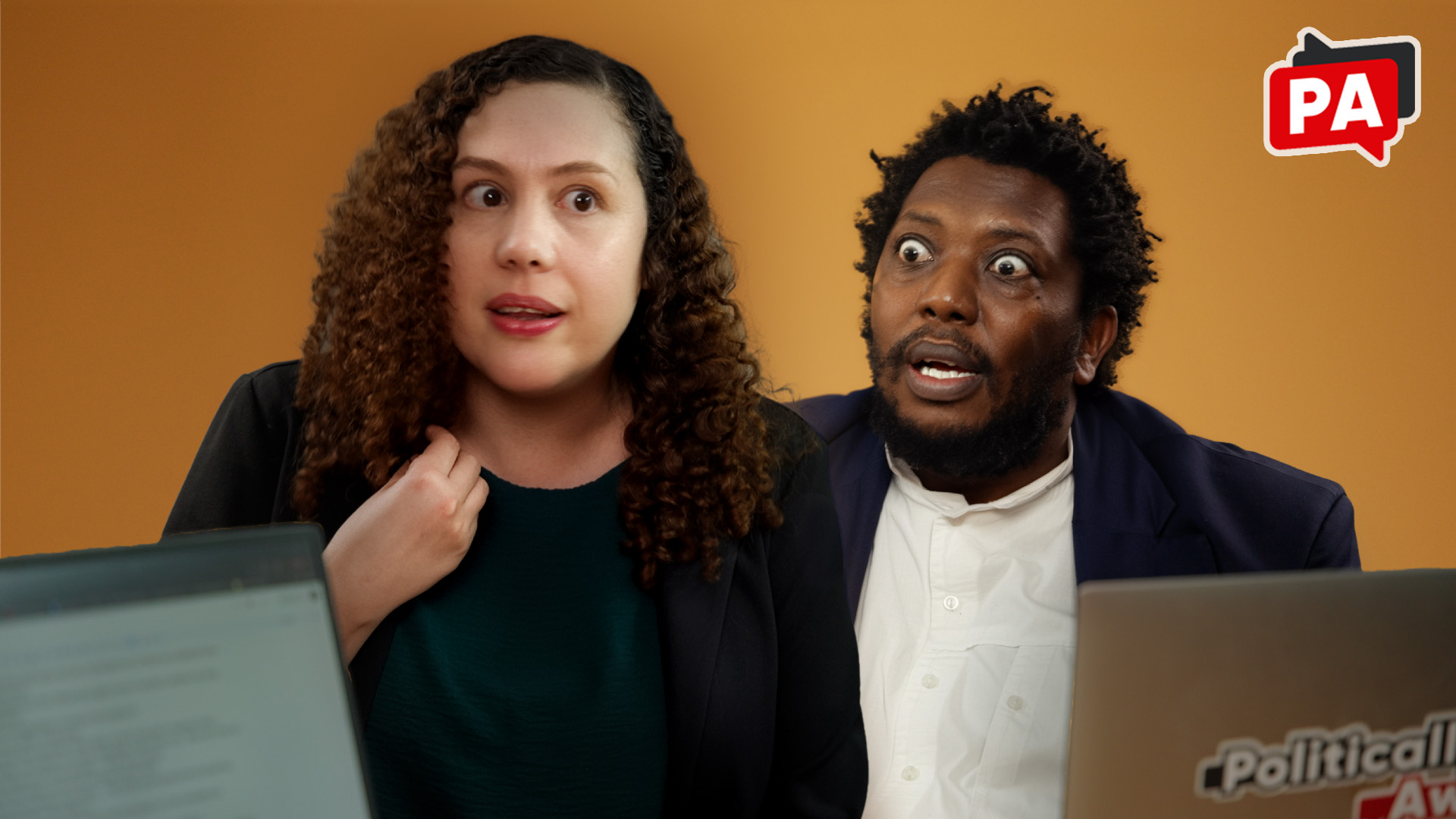Asked about the country’s current state, she doesn’t sugarcoat it: “I would say we are in a state with mafia-like elements. We are in a state that is saturated in organised crime.”
Plot twist: The infrastructure for all of this? It’s been here since apartheid. Surprise! (not)
While most people are scared of things like birds (yes, really, Dolley confirmed she’s terrified of them), she still decided that investigating the actual mafia was a solid career move. The toll? “I eat a lot of, um… what is it? Anti-heartburn stuff,” she admits. “There was a stage I was, like, popping them like popcorn.”
But it gets heavier. “I’ve been threatened, and I consider myself lucky for being threatened. I haven’t just been attacked,” Dolley reveals, casually mentioning the constant fear of not knowing “if someone will just flip and react one day and decide, oh, just take her out”.
When the conversation turns to allegations by KwaZulu-Natal’s police commissioner, Lieutenant General Nhlanhla Mkhwanazi, about a criminal cartel running through South Africa’s police service and government, Dolley’s response is unexpectedly emotional. After years of writing about police corruption and drug trafficking, she felt something rare: relief.
“I’ve written four books about police corruption, about drug trafficking in, through and by South Africa. I’ve written about too many murders to even conceive of, and I’ve just thought, oh my gosh. Whether this is true or not, it means that focus will be on this.”
In possibly the most unhinged but totally valid question of the interview, KG asks if Dolley misses the Gupta-era State Capture because at least back then politicians were getting proper curry invitations and houses, not just missed phone calls like some situationship gone wrong. Dolley’s response? She misses “the simplicity of beautiful, naive little days when we knew little”.
But here’s the kicker: “I don’t think that you can say State Capture is over because there’s a new president,” Dolley warns, coining what she calls “State Capture 0.2” (with apartheid being 0.1, naturally). “The horrible thing about a country in the hands of the corrupt is that we only truly realise the extent of it in retrospect.”
Cool, cool, cool. Not scary at all.
She also points out the impossible position businesses face with extortion: pay the money and you’re complicit; don’t pay and someone might get murdered. “If you get that gut instinct... if you know of a place or you read about the place and something’s happening there, use your brain, use your mind,” she urges.
When KG cheekily asks who’s scarier, the Stellenbosch mafia or taxi associations, Dolley’s deadpan response cuts through: “Is there a difference?”
She emphasises that organised crime isn’t just about stereotypical gangsters. “The person sitting in a business who’s committing crime that is linked to that gang is a gangster. So I would say we are using different words to describe the same thing, which is organised crime."
The conversation takes a gut-wrenching turn when Dolley discusses the human cost of her work. Mentioning recent gang violence that killed a two-month-old and an 11-year-old girl, her voice breaks: “I feel helpless, like I feel a lot more helpless now than I’ve ever felt in my career... It breaks my heart that we can’t do more and that there’s something fundamentally wrong.”
But even in the darkness Dolley finds hope: “People still trust some of us enough to impart information that is dangerous. There are brave people talking to me.”
Her final message to South Africans? Stop scrolling TikTok long enough to use your actual brain, and remember: “What good have you done today? It’s like a tiny thought and it costs nothing.”
Oh, and she was definitely not bribed with a gift bag during this interview. Just to be clear.
Dive deeper into whether South Africa is a mafia state, in our latest explainer video here. DM
For more from Politically Aweh, subscribe on YouTube, visit our website or follow us on Instagram, Facebook, TikTok or X.





 Illustrative image: KG Mogadi (Source: Politically Aweh Podcast 15) | Caryn Dolley (Source: Politically Aweh Podcast 15)
Illustrative image: KG Mogadi (Source: Politically Aweh Podcast 15) | Caryn Dolley (Source: Politically Aweh Podcast 15)